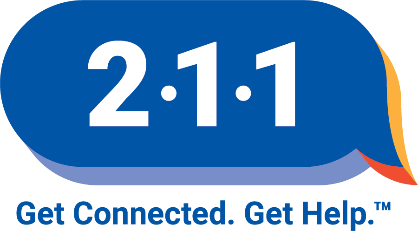Amendments to HAR 11-157 have been signed by Governor Ige. The revised rules now conform with current, national recommendations and reflect what is already occurring in healthcare providers’ offices and clinics in Hawaii as standard medical practice. To access an electronic copy of the signed rules, visit https://health.hawaii.gov/opppd/files/2019/08/11-157-includes-Exhibit-A-and-Exhibit-B.pdf.
Beginning July 1, 2020, additional immunizations will be required for students entering childcare or preschool, kindergarten, 7th grade, and post-secondary schools, and all students entering school in Hawaii for the first time. For a complete list of required vaccines, visit https://health.hawaii.gov/docd/vaccines-immunizations/school-health-requirements/sy-20-21/.
Status as of 04/29/2019
HAR 11-157 was last amended in 2001. Since then, updates have been made to the vaccine recommendations of the Centers for Disease Control and Prevention’s (CDC) Advisory Committee on Immunization Practices (ACIP), resulting in differences between current national standards and Hawaii’s school entry and attendance requirements. The proposed amendments conform with current national recommendations and update Hawaii’s administrative rules to reflect what is already occurring in healthcare provider offices and clinics in Hawaii and elsewhere as standard medical practice.
- Proposed changes to HAR 11-157: https://health.hawaii.gov/opppd/proposed-changes-to-department-of-health-administrative-rules-title-11/.
- Immunization Requirements – Current and Proposed Comparison: https://health.hawaii.gov/docd/files/2018/11/HAR-11-157_Current_Proposed_Comparison.pdf
- Note: Medical and Religious Exemptions remain intact, per HAR §11-157-5
The Hawaii State Department of Health (DOH) collected testimony on the proposed amendments. Public hearings were conducted on the islands of Hawaii, Kauai, Lanai, Maui, Molokai (via video conferencing), and Oahu. Testimony was accepted orally and in writing. The deadline for receiving written testimony was Dec. 26, 2018. Oral testimonies were provided by over 100 individuals. In addition, over 700 written testimony submissions were received. Testimonies submitted orally at the public hearings were transcribed from audio recordings.
Warning: Please be advised that profanity has been redacted from written and transcribed testimony files but were not removed from audio recordings. All testimony (written, oral, and transcribed) may contain language and content that could be deemed as offensive. Testifier’s contact information has been redacted in the effort to protect privacy.
Written Testimonies (link to PDF)
Oral Testimonies from Public Hearings
| Oahu | November 1, 2018 | Audio File (link to .MP3) | Transcript (link to PDF) |
| Maui and Molokai | December 14, 2018 | Audio File (link to .MP3) | Transcript (link to PDF) |
| Lanai | December 18, 2018 | Audio File (link to .MP3) | Transcript (link to PDF) |
| Hilo | December 20, 2018 | Audio File (link to .MP3) | Transcript (link to PDF) |
| Kona | December 20, 2018 | Audio File (link to .MP3) | Transcript (link to PDF) |
| Kauai | December 21, 2018 | Audio File (link to .MP3) | Transcript (link to PDF) |
All testimony received will be carefully reviewed and considered as revisions to the proposed rules are compiled. The amended administrative rules will be reviewed by DOH Administration and the Attorney General’s Office prior to submission to the Governor’s Office for signing. A summary of concerns (e.g., vaccine safety, reporting requirements and privacy, vaccine effectiveness, etc.) submitted in testimonies and DOH’s response to each will be submitted to the Governor for his consideration with the revised rules.
DOH Responses to Concerns Submitted in Testimony (link to PDF)
Frequently Asked Questions
Q: Why are the rules being changed?
A: Vaccine recommendations are constantly updated to account for the latest available science. This includes updates to both the types of vaccines that are recommended and how they are given. Healthcare providers in Hawaii already follow these recommendations. The administrative school entry and attendance requirements need to be updated so students aren’t excluded based on the old administrative rules.
Q: What are the proposed changes?
A: HAR 11-157 was last amended 18 years ago. Standard medical practice now includes additional vaccines which protect children from pneumonia, meningitis (infection of the brain and spinal cord membranes), bloodstream infections, cervical cancer, and head and neck cancer, and provide continued protection from tetanus, diphtheria, and pertussis (whooping cough). These changes are reflected in the proposed amendments.
Q: Will this affect medical and religious exemptions?
A: No. Applications for medical and religious exemptions will not be affected, nor will exemptions which are already in place.
Q: Why do we have state vaccination requirements?
A: All states require children to be vaccinated against communicable diseases to attend school. These requirements ensure most if not all children receive specific vaccines and thereby reduce the rates of vaccine-preventable diseases like pertussis (whooping cough) and the likelihood of spread of others like measles if children are exposed.
Q: Do vaccines cause side effects?
A: Like all medications, vaccinations can cause side effects. The most common reactions include redness, swelling, and soreness at the site where the shot was given, as well as fever. All of these usually last only a few days and resolve on their own. Serious side effects are very rare. Risks from vaccine side effects should be weighed against risks from vaccine-preventable diseases which can cause serious illness, long-term disability, and even death.
Q: Who is ACIP, and why should we trust their recommendations?
A: The Advisory Committee on Immunization Practices (ACIP) is a national group of medical and public health experts who continually scrutinize the scientific data pertaining to vaccines and provide recommendations to the Centers for Disease Control and Prevention (CDC). This ensures vaccine guidelines for standard medical practice in the U.S. are constantly updated based on new information on vaccine safety, efficacy, and cost-effectiveness. It also limits interference from lobbying groups or special interests as stringent measures are put in place to avoid conflicts of interest.
Last updated 08/27/2019

